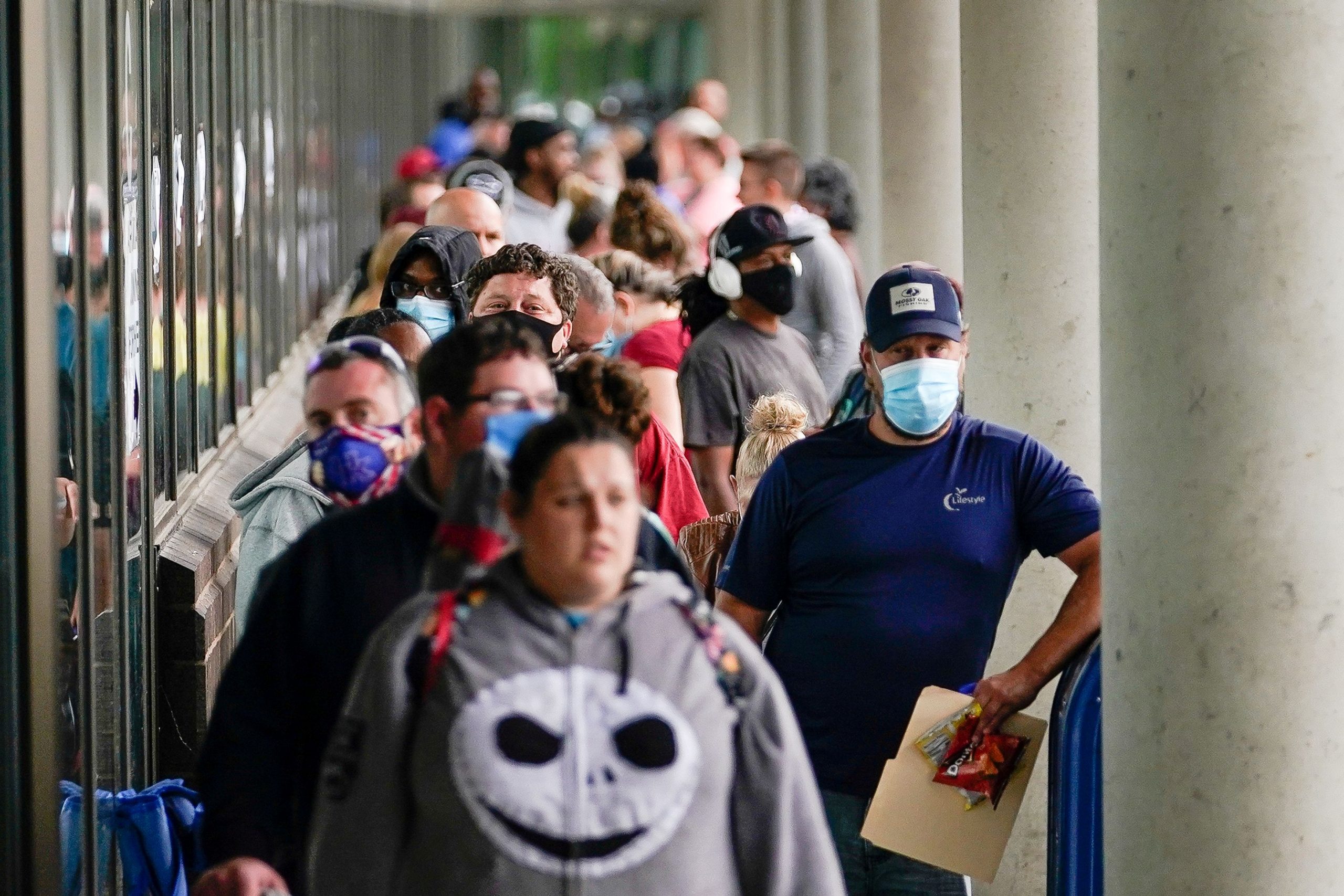U.S. employment growth slowed considerably in July amid a resurgence in new COVID-19 infections, offering the clearest evidence yet that the economy’s recovery from the recession caused by the pandemic was faltering.
Nonfarm payrolls increased by 1.763 million jobs last month after a record 4.791 million in June, the Labor Department said on Friday. Economists polled by Reuters had forecast 1.6 million jobs were added in July.
The unemployment rate fell to 10.2% from 11.1% in June, but it has been biased downward by people misclassifying themselves as being “employed but absent from work.” At least 31.3 million people were receiving unemployment checks in mid-July.
“The steam has gone out of the engine and the economy is beginning to slow,” said Sung Won Sohn, a finance and economics professor at Loyola Marymount University in Los Angeles. “The loss of momentum will continue and my concern is that the combination of the virus resurgence and lack of action by Congress could really push employment into negative territory.”
The labor market step-back is more bad news for President Donald Trump, who is lagging in opinion polls behind former Vice President Joe Biden, the presumptive Democratic Party nominee for the Nov. 3 election.
It also piles up pressure on the White House and Congress to speed up negotiations on a second aid package, which have been dragging over differences on major issues including the size of a government benefit for tens of millions of unemployed workers.
A $600 weekly unemployment benefit supplement expired last Friday, while thousands of businesses have burned through loans offered by the government to help with wages.
The economy, which entered into recession in February, suffered its biggest blow since the Great Depression in the second quarter, with gross domestic product dropping at its steepest pace in at least 73 years.
Infections of the respiratory illness soared across the country last month, forcing authorities in some of the worst affected areas in the West and South to either shut down businesses again or pause reopenings, sending workers back home. Demand for goods and services has suffered.
The slowdown in hiring challenges the U.S. stock market’s expectation of a V-shaped recovery. The S&P 500 index <.SPX> is up nearly 50% from its March trough. As COVID-19 cases spiral, and Republicans and Democrats bicker over another stimulus package, economists see a W-shaped recovery.
Economists estimate the Paycheck Protection Program that gave businesses loans that can be partially forgiven if used for employee pay saved around 1.3 million jobs at its peak. The extra $600 weekly unemployment checks made up 20% of personal income and helped to boost consumer spending in May and June.
(Reporting by Lucia Mutikani; Editing by Chris Reese)























